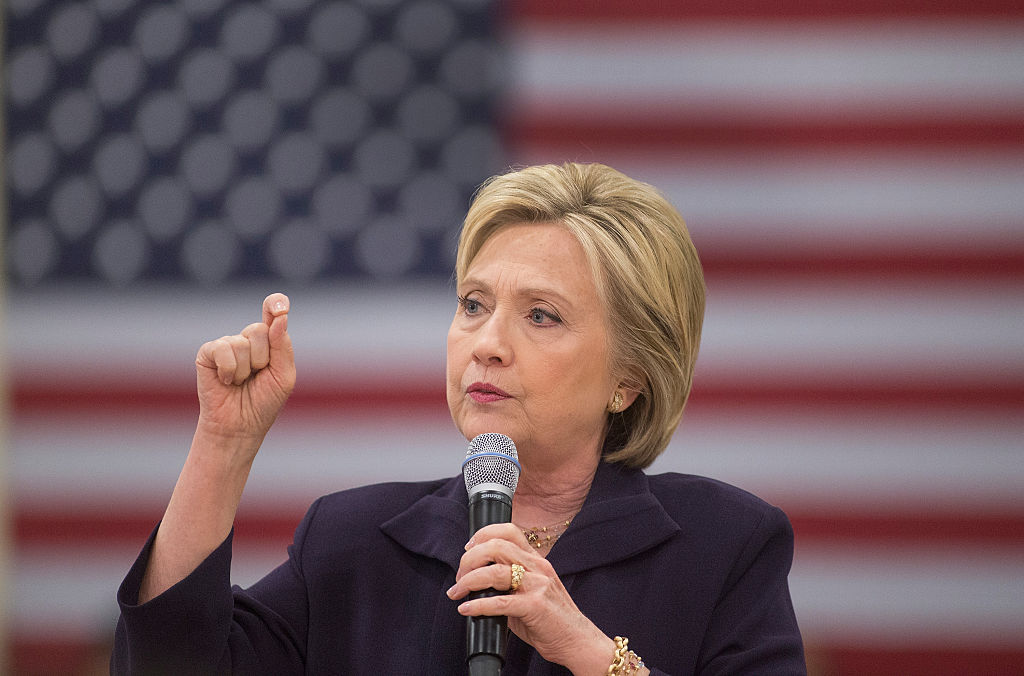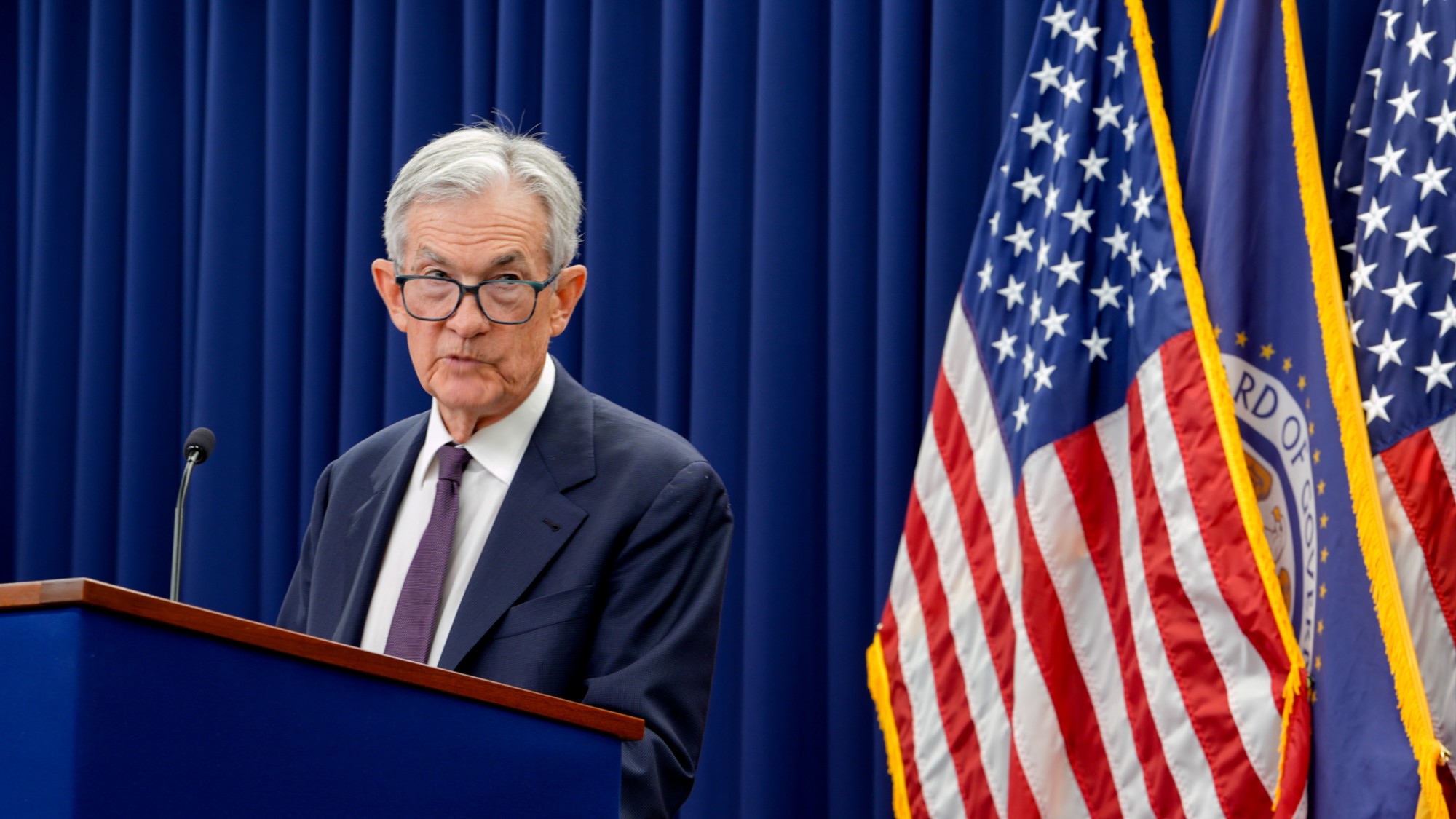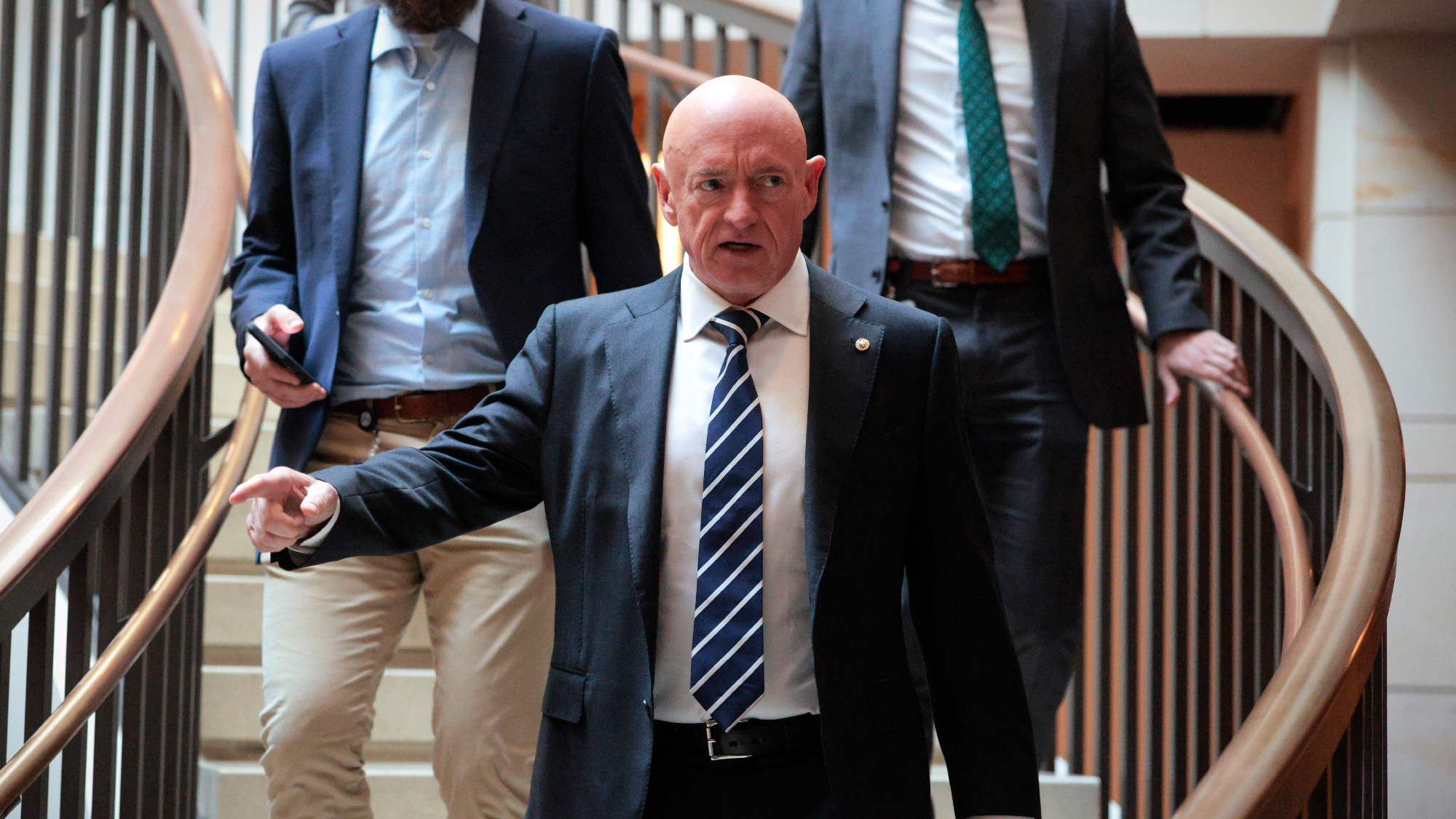New polls show Hillary Clinton gaining momentum in Pennsylvania

A free daily email with the biggest news stories of the day – and the best features from TheWeek.com
You are now subscribed
Your newsletter sign-up was successful
Hillary Clinton appears to be pulling away in Pennsylvania. Three recent polls of the Quaker State released in the last 24 hours have consistently shown the Democratic presidential candidate with comfortable leads over her Republican rival, Donald Trump.
In a Monmouth University poll published Tuesday, Clinton claimed a lead in the double digits, with 50 percent of likely Pennsylvania voters backing her and 40 percent backing Trump. That's a 2-point bump from the last time the poll was taken in August, when Clinton led Trump 48 percent to 40 percent.
In another poll released Monday by Franklin and Marshall College, Clinton held a 9-point lead among likely voters, 47 percent to 38 percent, and an even larger 12-point lead among registered voters. When the poll was last taken, in September, Clinton's lead was 7 points among likely voters and just 4 percent among registered voters.
The Week
Escape your echo chamber. Get the facts behind the news, plus analysis from multiple perspectives.

Sign up for The Week's Free Newsletters
From our morning news briefing to a weekly Good News Newsletter, get the best of The Week delivered directly to your inbox.
From our morning news briefing to a weekly Good News Newsletter, get the best of The Week delivered directly to your inbox.
Finally, a Quinnipiac University poll out Monday showed Clinton with a 4-point edge over Trump in Pennsylvania, winning 45 percent support to Trump's 41 percent. That lead is within the poll's margin of error of 4.2 points, however, and unlike the other polls, the Quinnipiac result is actually a slight dip for Clinton; in the previous iteration of the poll, released in early September, she led Trump by 5 points.
The RealClearPolitics polling average shows Pennsylvania generally skewing toward Clinton, with her carrying a 5.4-point lead over Trump across an average of state polls. If that lead sticks, it makes Trump's electoral math a bit tricky: As Politico's Matthew Nussbaum reported, if Trump doesn't win Pennsylvania, he'd have to carry Florida, Ohio, North Carolina, Iowa, Nevada, and New Hampshire if he even wants to tie Clinton. Right now, RealClearPolitics polling averages only show Trump leading in Ohio and Iowa.
A free daily email with the biggest news stories of the day – and the best features from TheWeek.com
-
 Minnesota's legal system buckles under Trump's ICE surge
Minnesota's legal system buckles under Trump's ICE surgeIN THE SPOTLIGHT Mass arrests and chaotic administration have pushed Twin Cities courts to the brink as lawyers and judges alike struggle to keep pace with ICE’s activity
-
 Big-time money squabbles: the conflict over California’s proposed billionaire tax
Big-time money squabbles: the conflict over California’s proposed billionaire taxTalking Points Californians worth more than $1.1 billion would pay a one-time 5% tax
-
 ‘The West needs people’
‘The West needs people’Instant Opinion Opinion, comment and editorials of the day
-
 Trump sues IRS for $10B over tax record leaks
Trump sues IRS for $10B over tax record leaksSpeed Read The president is claiming ‘reputational and financial harm’ from leaks of his tax information between 2018 and 2020
-
 Trump, Senate Democrats reach DHS funding deal
Trump, Senate Democrats reach DHS funding dealSpeed Read The deal will fund most of the government through September and the Department of Homeland Security for two weeks
-
 Fed holds rates steady, bucking Trump pressure
Fed holds rates steady, bucking Trump pressureSpeed Read The Federal Reserve voted to keep its benchmark interest rate unchanged
-
 Judge slams ICE violations amid growing backlash
Judge slams ICE violations amid growing backlashSpeed Read ‘ICE is not a law unto itself,’ said a federal judge after the agency violated at least 96 court orders
-
 Rep. Ilhan Omar attacked with unknown liquid
Rep. Ilhan Omar attacked with unknown liquidSpeed Read This ‘small agitator isn’t going to intimidate me from doing my work’
-
 Democrats pledge Noem impeachment if not fired
Democrats pledge Noem impeachment if not firedSpeed Read Trump is publicly defending the Homeland Security secretary
-
 The billionaires’ wealth tax: a catastrophe for California?
The billionaires’ wealth tax: a catastrophe for California?Talking Point Peter Thiel and Larry Page preparing to change state residency
-
 Hegseth moves to demote Sen. Kelly over video
Hegseth moves to demote Sen. Kelly over videospeed read Retired Navy fighter pilot Mark Kelly appeared in a video reminding military service members that they can ‘refuse illegal orders’